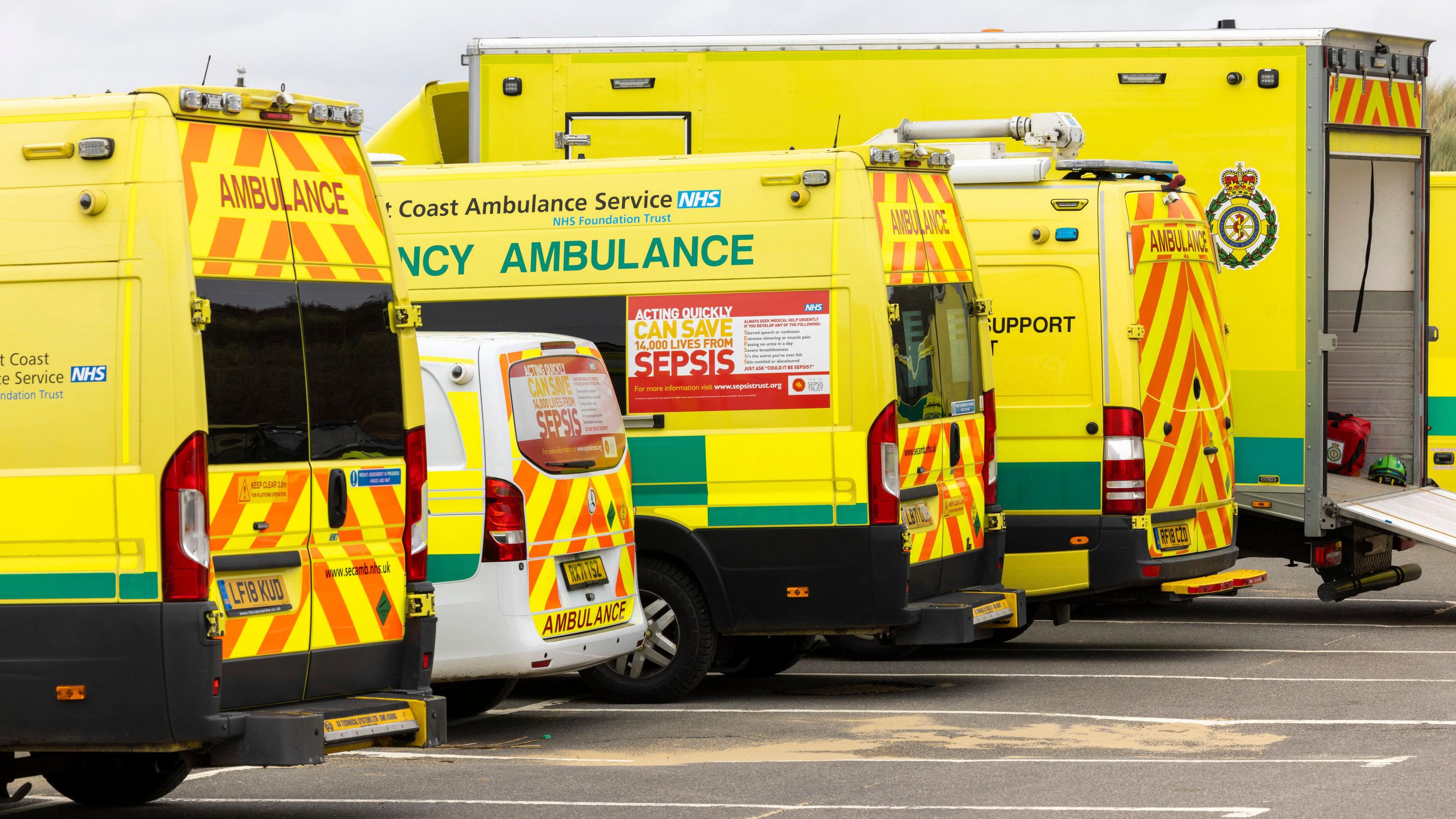Concern as man dies after three-hour ambulance wait

Philip Ross died on 19 December 2023 after falling on 3 December
- Published
A coroner has called for action after a man died in hospital after waiting more than three hours for an ambulance.
Philip Ross died at the Royal Surrey County Hospital on 19 December 2023 after a fall at his home on 3 December.
Surrey's assistant coroner Susan Ridge, who ruled Mr Ross's cause of death as multiple organ failure following an accident, said South East Coast Ambulance Service (Secamb) had not provided evidence that its timeline for clinical validation was being met.
Secamb said it was "very sorry" it had been unable to respond to Mr Ross quicker.
'Increasingly anxious calls'
Mr Ross's wife called for an ambulance at 23:25 GMT as he was unable to move after injuring his shoulder and paramedics did not arrive until 02:30, a prevention of future deaths report stated.
During the wait, Mrs Ross also made "a number of increasingly anxious calls" to the ambulance service.
Mr Ross was admitted to the hospital's emergency department at about 04:16.
Ms Ridge said category three cases had a response time of 120 minutes and Secamb aimed to validate these calls within 90 minutes.
A clinical validation is carried out when a case is sent to a clinician in order to decide the best response for the patient.
The assistant coroner said the 90-minute target was not met in Mr Ross's case.
"The evidence showed that no form of clinical validation of the calls took place until approximately two hours and 20 minutes after the initial call," she said.
The court heard the ambulance and clinical validation delays were due to high demand as well as a lack of available staff and "clinical hours".
Ms Ridge said category three and four cases were deemed less serious and therefore had extended response times for ambulance attendance, which could be further extended due to high demand.
'Risk of early death'
The report stated: "Because of these potentially long response times, timely clinical validation is important to ensure correct categorisation and/or identify a deteriorating situation.
"The coroner is concerned that late re-triage or clinical validation of category three and four calls is placing patients at risk of early death."
The ambulance service had 56 days from 16 September to respond to the coroner's report.
A Secamb spokesperson said: "We recognise that there are times when we are taking longer than we should to respond to some calls and are working hard to address this and improve performance across all categories of call."
Follow BBC Surrey on Facebook, external, and on X, external. Send your story ideas to southeasttoday@bbc.co.uk, or WhatsApp us on 08081 002250.